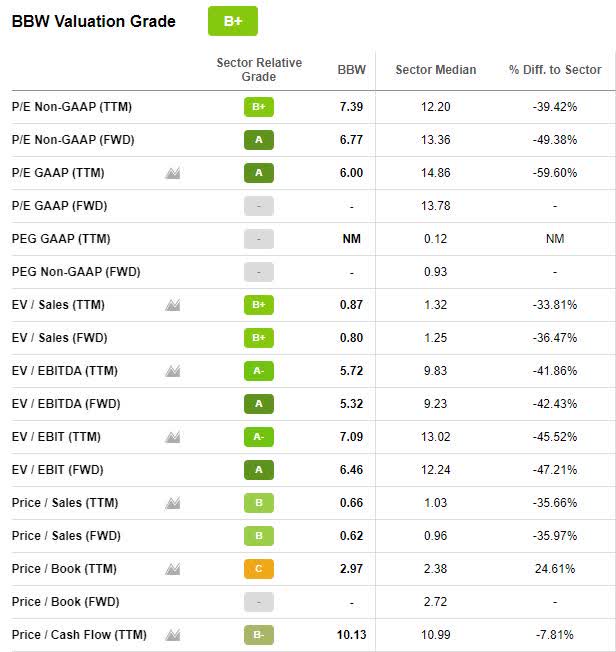
There are several things that you should be aware about when investing for your first time. These include understanding your risk appetite, choosing an investment strategy, and avoiding investment scams. Your investing goals are the first thing that you should do. It is much easier to invest when you are clear about your investment goals. It can be difficult to decide what investment you want. There are many investment options today. Different investors may have different investment goals.
Compounding
When investing for the first-time, there are many benefits to compounding. The earlier you start, the better. The longer you wait to invest, the more compounding will work in your favor. This means you will have more money when you retire if your investments are made early. Your return will be higher if you make your contributions early. Your future is in good hands if you compound.
Compounding allows you to increase your investment's growth by adding investment earnings on top of the initial investment. It's crucial to invest in stocks that have a high dividend yield, like Coca-Cola or IBM. This way, you can build a greater base and take a lower risk compared to investing in individual stocks. While dividend stocks don't offer huge returns, they can give you compounding income over a long time.

Understanding your risk appetite
Your risk appetite refers to the amount of volatility you are willing to accept in an investment. You will make poor investment decisions or act on impulse if you take too much risk. If you don't understand your risk appetite, you might make bad investment decisions, or you could end up losing your entire investment. In order to determine your risk appetite, you must consider the amount of money that you plan to invest, and your investment goal.
Also, if your goal is to be a long-term investment, your risk appetite should not exceed 10%. You can afford to take calculated chances. Market volatility can be used to assess your risk appetite. People with high risk appetites are those who are able to withstand a high degree of volatility. If you are a short term investor, however, your risk appetite should not be high. Think about your investment goals and time frame to assess your risk appetite.
Choosing a good investment strategy
It can be difficult to choose a great investment strategy for a novice investor. Stock market prices fluctuate constantly and it can be tempting to sell at loss whenever they drop. This strategy works for long-term investors who are willing to bear the occasional market decline. However, it should be noted that the risks involved are high and should only be used by those who are comfortable with risk.
Before you make a decision on an investment strategy to pursue, be sure to understand your personal goals. Each person has different financial objectives, so it's important to identify which one works for you. Decide whether you want to invest for retirement or a large purchase in your future. Once you have decided your goals, you will find it easier to narrow down the options. You should keep in mind that investment options offer different levels liquidity, risk, or opportunity.

Avoiding investment fraud
You can avoid investment fraud when investing for the first time by being aware of common strategies used by scammers. In order to attract unsuspecting investors, one common tactic is to encourage stocks and crypto currencies. These companies are not registered to trade securities and promote investments by promoting an artificial market. They make enormous profits as a result. To avoid becoming a victim of investment fraud, be suspicious of unsolicited messages.
Some people fall prey to investment fraud by advancing small sums of money with the hope of making large gains. However, those gains never materialize because there's no legitimate underlying investment. The perpetrators then seize control of the funds, but never deliver the investment. Investment fraud can be avoided by doing independent research. You should never trust unrequested emails with your investment decisions. Do your research and ask as many questions to the company as you can before you invest. If you are unable to understand the company’s financial statements and business plans, it is best not to invest.
FAQ
How do I invest in the stock market?
Brokers can help you sell or buy securities. Brokers buy and sell securities for you. You pay brokerage commissions when you trade securities.
Brokers often charge higher fees than banks. Banks will often offer higher rates, as they don’t make money selling securities.
You must open an account at a bank or broker if you wish to invest in stocks.
A broker will inform you of the cost to purchase or sell securities. This fee will be calculated based on the transaction size.
Ask your broker:
-
the minimum amount that you must deposit to start trading
-
What additional fees might apply if your position is closed before expiration?
-
What happens to you if more than $5,000 is lost in one day
-
How long can you hold positions while not paying taxes?
-
What you can borrow from your portfolio
-
Whether you are able to transfer funds between accounts
-
How long it takes to settle transactions
-
The best way for you to buy or trade securities
-
How to avoid fraud
-
how to get help if you need it
-
If you are able to stop trading at any moment
-
If you must report trades directly to the government
-
whether you need to file reports with the SEC
-
How important it is to keep track of transactions
-
If you need to register with SEC
-
What is registration?
-
What does it mean for me?
-
Who is required to be registered
-
What time do I need register?
What is the difference between stock market and securities market?
The entire market for securities refers to all companies that are listed on an exchange that allows trading shares. This includes stocks, options, futures, and other financial instruments. Stock markets are typically divided into primary and secondary categories. Stock markets that are primary include large exchanges like the NYSE and NASDAQ. Secondary stock markets are smaller exchanges where investors trade privately. These include OTC Bulletin Board Over-the-Counter and Pink Sheets as well as the Nasdaq smallCap Market.
Stock markets are important for their ability to allow individuals to purchase and sell shares of businesses. Their value is determined by the price at which shares can be traded. New shares are issued to the public when a company goes public. These newly issued shares give investors dividends. Dividends are payments made by a corporation to shareholders.
Stock markets provide buyers and sellers with a platform, as well as being a means of corporate governance. Boards of Directors are elected by shareholders and oversee management. The boards ensure that managers are following ethical business practices. In the event that a board fails to carry out this function, government may intervene and replace the board.
How can I find a great investment company?
A good investment manager will offer competitive fees, top-quality management and a diverse portfolio. The type of security in your account will determine the fees. Some companies don't charge fees to hold cash, while others charge a flat annual fee regardless of the amount that you deposit. Others charge a percentage of your total assets.
It's also worth checking out their performance record. If a company has a poor track record, it may not be the right fit for your needs. Companies with low net asset values (NAVs) or extremely volatile NAVs should be avoided.
You also need to verify their investment philosophy. A company that invests in high-return investments should be open to taking risks. They may not be able meet your expectations if they refuse to take risks.
What is the difference of a broker versus a financial adviser?
Brokers help individuals and businesses purchase and sell securities. They handle all paperwork.
Financial advisors are experts in the field of personal finances. Financial advisors use their knowledge to help clients plan and prepare for financial emergencies and reach their financial goals.
Banks, insurance companies or other institutions might employ financial advisors. They may also work as independent professionals for a fee.
Consider taking courses in marketing, accounting, or finance to begin a career as a financial advisor. Also, you'll need to learn about different types of investments.
How are shares prices determined?
Investors are seeking a return of their investment and set the share prices. They want to make profits from the company. They buy shares at a fixed price. If the share price increases, the investor makes more money. If the share price falls, then the investor loses money.
The main aim of an investor is to make as much money as possible. This is why they invest into companies. They are able to make lots of cash.
Statistics
- For instance, an individual or entity that owns 100,000 shares of a company with one million outstanding shares would have a 10% ownership stake. (investopedia.com)
- Individuals with very limited financial experience are either terrified by horror stories of average investors losing 50% of their portfolio value or are beguiled by "hot tips" that bear the promise of huge rewards but seldom pay off. (investopedia.com)
- The S&P 500 has grown about 10.5% per year since its establishment in the 1920s. (investopedia.com)
- Our focus on Main Street investors reflects the fact that American households own $38 trillion worth of equities, more than 59 percent of the U.S. equity market either directly or indirectly through mutual funds, retirement accounts, and other investments. (sec.gov)
External Links
How To
How can I invest in bonds?
You will need to purchase a bond investment fund. The interest rates are low, but they pay you back at regular intervals. You make money over time by this method.
There are many different ways to invest your bonds.
-
Directly buy individual bonds
-
Buy shares of a bond funds
-
Investing through a bank or broker.
-
Investing through a financial institution.
-
Investing through a Pension Plan
-
Invest directly through a broker.
-
Investing via a mutual fund
-
Investing with a unit trust
-
Investing using a life assurance policy
-
Private equity funds are a great way to invest.
-
Investing with an index-linked mutual fund
-
Investing in a hedge-fund.